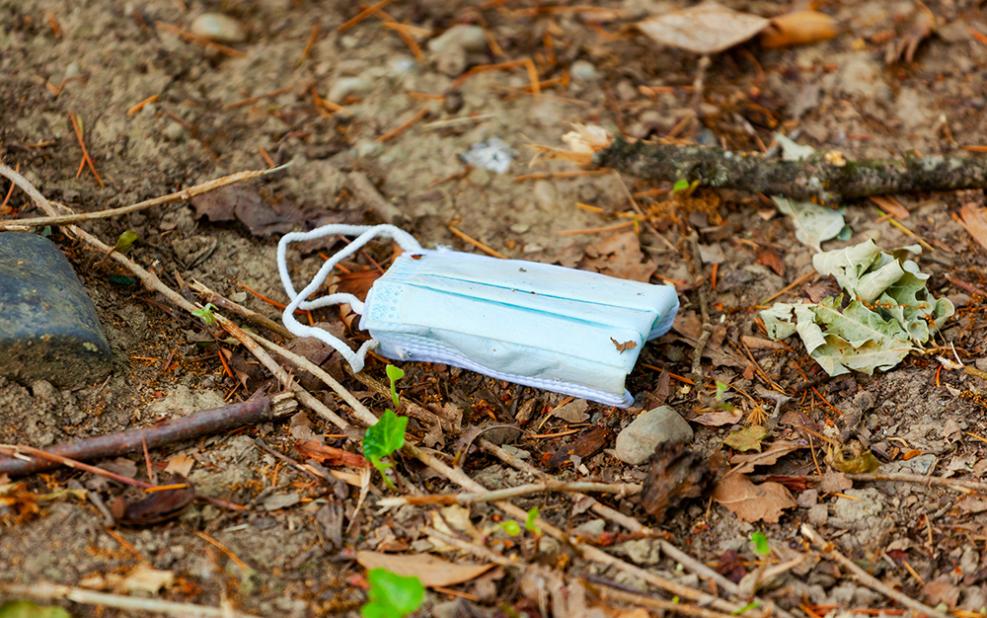How Can We Reduce the Environmental Impact of Face Masks?
The widespread use of face masks during the COVID-19 pandemic has brought about a significant environmental concern. Disposable face masks, often made from non-biodegradable materials, have contributed to a surge in plastic waste, polluting oceans, waterways, and contributing to microplastic pollution.

Environmental Impact Of Disposable Face Masks
Accumulation Of Plastic Waste
Disposable face masks are primarily made from polypropylene, a type of plastic that takes hundreds of years to decompose. As a result, discarded face masks accumulate in landfills and natural environments, posing a severe threat to wildlife and ecosystems.
Pollution Of Oceans And Waterways
Improperly discarded face masks often end up in oceans and waterways, where they can harm marine life. Marine animals can mistake face masks for food, leading to ingestion and subsequent health problems. Additionally, face masks can entangle marine life, causing injury or death.
Contribution To Microplastic Pollution
Disposable face masks can break down into smaller pieces over time, creating microplastics. Microplastics are tiny plastic particles that can be ingested by marine organisms and accumulate in the food chain, potentially causing adverse effects on human health and ecosystems.
Difficulty In Recycling

Recycling disposable face masks is challenging due to their complex composition and contamination with bodily fluids. As a result, most disposable face masks end up in landfills or as litter, exacerbating the plastic waste problem.
Sustainable Alternatives To Disposable Face Masks
To address the environmental impact of disposable face masks, sustainable alternatives have emerged, offering eco-friendly and reusable options.
Reusable Face Masks

Reusable face masks are made from washable and durable materials, such as cotton or polyester. They can be reused multiple times, reducing the amount of waste generated compared to disposable masks.
Biodegradable Face Masks
Biodegradable face masks are made from materials that can break down naturally over time. These masks are typically made from plant-based materials, such as bamboo or cellulose, and decompose into organic matter, reducing their environmental impact.
Compostable Face Masks
Compostable face masks are made from materials that can be broken down by microorganisms into organic matter. These masks can be composted at home or in commercial composting facilities, turning them into a valuable soil amendment.
Masks Made From Recycled Materials
Face masks made from recycled materials, such as recycled plastic or fabric, offer a sustainable alternative to disposable masks. By using recycled materials, these masks reduce the demand for virgin materials and help divert waste from landfills.
Benefits Of Sustainable Face Masks
Adopting sustainable face masks offers numerous benefits for the environment and society.
Reduction Of Plastic Waste
Sustainable face masks help reduce the amount of plastic waste generated by disposable masks. By choosing reusable, biodegradable, compostable, or recycled masks, individuals can significantly contribute to reducing plastic pollution.
Protection Of Marine Life And Ecosystems
Sustainable face masks help protect marine life and ecosystems by preventing the accumulation of plastic waste in oceans and waterways. By reducing the number of discarded face masks, the risk of entanglement and ingestion by marine animals is minimized.
Promotion Of Circular Economy
Sustainable face masks promote a circular economy by reducing the need for virgin materials and encouraging the reuse and recycling of materials. This approach helps conserve natural resources and reduces the environmental impact associated with the production and disposal of disposable face masks.
Contribution To A More Sustainable Lifestyle
Choosing sustainable face masks is a simple yet effective way to contribute to a more sustainable lifestyle. By making informed choices about the products we use, we can reduce our environmental footprint and promote a healthier planet for future generations.
Challenges And Opportunities
While sustainable face masks offer numerous benefits, there are challenges and opportunities that need to be addressed.
Cost Of Sustainable Face Masks
Sustainable face masks may be more expensive than disposable masks, which can be a barrier for some individuals. However, as demand for sustainable masks increases, economies of scale may lead to lower prices, making them more accessible.
Accessibility Of Sustainable Face Masks
Sustainable face masks may not be readily available in all regions or at all retail locations. Increasing the availability of sustainable masks through various distribution channels can help address this challenge.
Consumer Awareness And Education
Raising awareness about the environmental impact of disposable face masks and the benefits of sustainable alternatives is crucial for driving consumer adoption. Educational campaigns and initiatives can help inform the public about the importance of making sustainable choices.
Government Regulations And Incentives
Government regulations and incentives can play a significant role in promoting the use of sustainable face masks. Implementing policies that encourage the production and use of sustainable masks, such as extended producer responsibility schemes or financial incentives, can help accelerate the transition to more eco-friendly face mask options.
Reducing the environmental impact of face masks is a collective responsibility that requires the involvement of individuals, businesses, and governments. By choosing sustainable face masks, raising awareness, and advocating for policy changes, we can create a more sustainable future where face mask use does not come at the expense of our planet.
YesNo

Leave a Reply